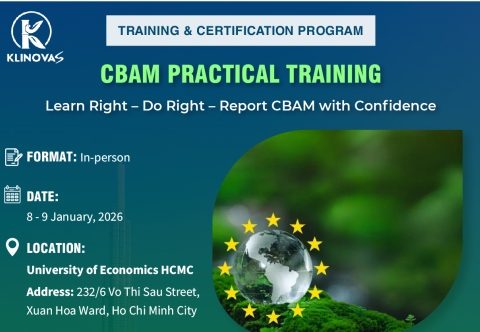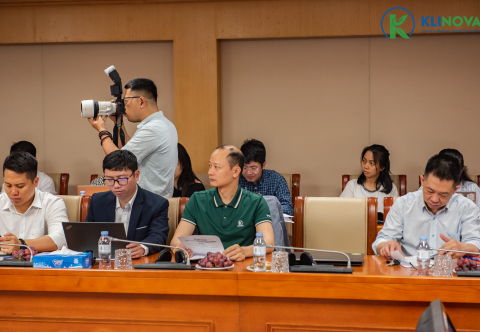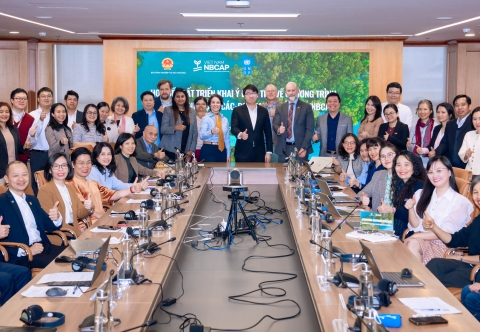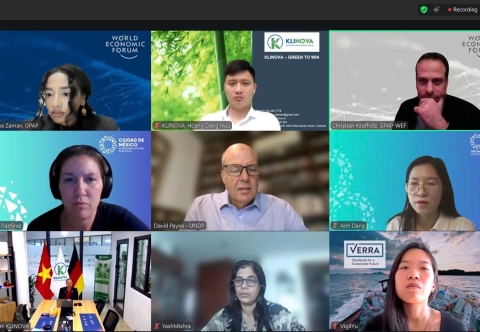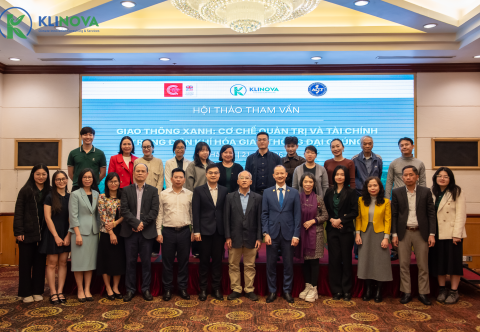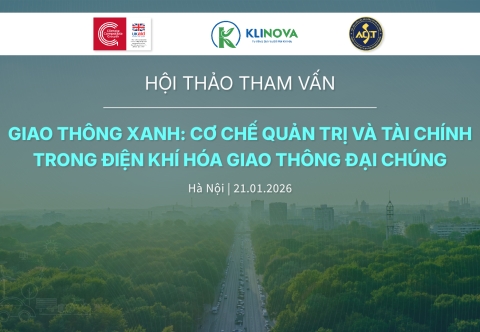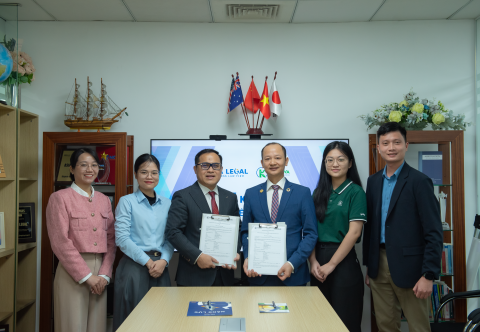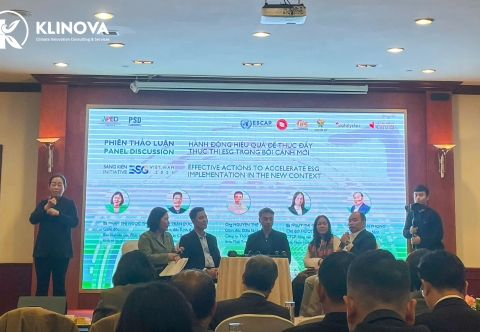On June 6th, a seminar themed “Businesses at the forefront of implementing ESG and circular economy” was organized by the Vietnam Economic Times magazine and the Ministry of Natural Resources and Environment.
Dr. Nam NGUYEN, CEO of KLINOVA and UNFCCC expert, participated as a speaker in the panel discussion on “ESG and circular economy: Integrating implementation for green transformation.”
The event was participated by agencies such as the Climate Change Department, the Institute of Strategy and Policy on Natural Resources and Environment, the Natural Resource and Environment Communication Center and the Institute of Meteorology, Hydrology and Climate Change under the Ministry of Natural Resources and Environment, alongside representatives from various Vietnamese businesses.
Turning green transformation into a competitive advantage
As an international expert in UNFCCC greenhouse gas inventory reporting and CEO of a business, Dr. Nam shared practical insights on ESG and circular economy practices in Vietnam. He emphasized that ESG and the circular economy are becoming competitive advantages for businesses. Therefore, Vietnamese enterprises, especially small and medium-sized enterprises and those weak in governance, need to focus more on collecting data and carbon credits.
“However, this process requires a long time and cannot be implemented immediately. Enterprises should document their daily activities to improve data collection. This will turn green transformation into a competitive advantage and drive economic development.” – noted Dr. Nam.
Three “Self” factors for businesses
According to Dr. Nam, to effectively implement ESG and circular economy, the most important thing for businesses is to develop internal capabilities.
1. Self-Leadership Capacity Enhancement
Business leadership must change themselves and raise awareness of ESG and the circular economy. Top-down change will create a solid foundation for the entire enterprise’s transformation.
2. Self-Improvement in Professional Capacity
Businesses need to develop technical and professional teams to practice ESG and sustainable reporting effectively. Investing in training and skills enhancement is the key to successful green transformation.
3. Self-Initiative in Capital
Enterprises do not need to spend their own money on green transformation but should have clear plans and strategies to attract support from investment funds and banks. This will help businesses carry out green transformation while ensuring profitability and sustainable development.
Implementing ESG and circular economy is not only a responsibility but also an opportunity for Vietnamese businesses to enhance their competitiveness and sustainable development. Businesses need meticulous preparation and long-term strategies to turn challenges into opportunities, contributing to the green and sustainable development of Vietnam.

